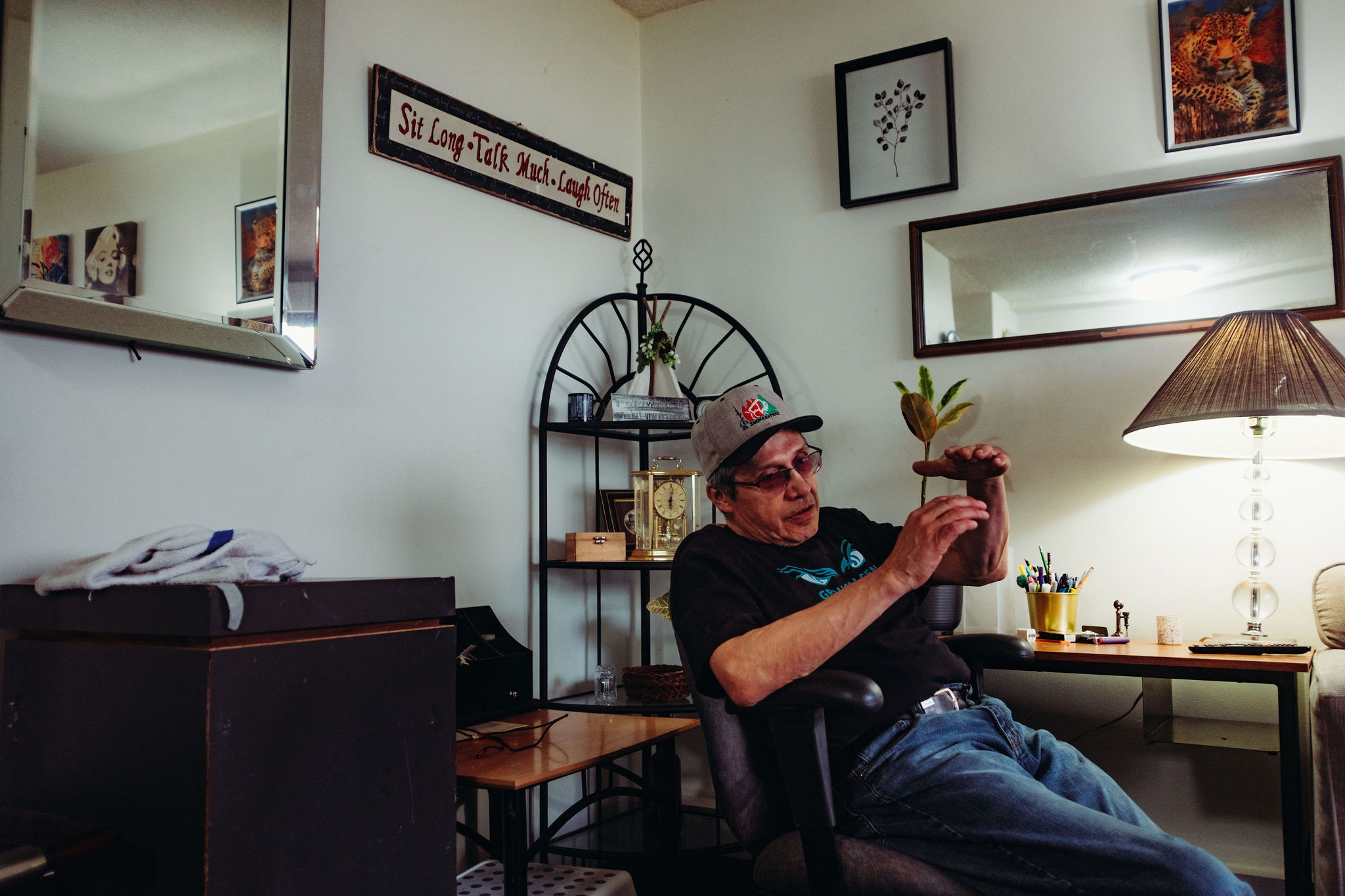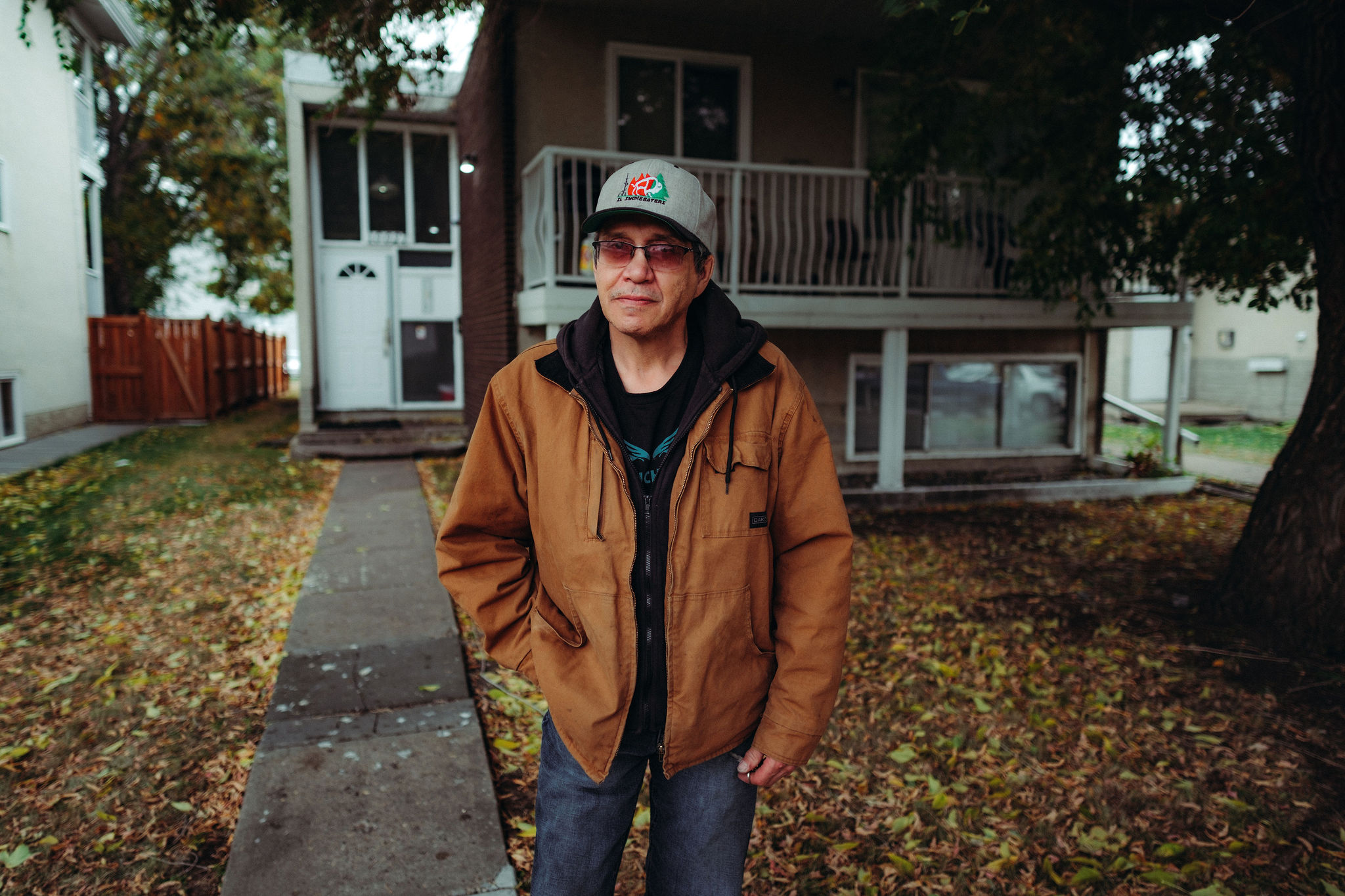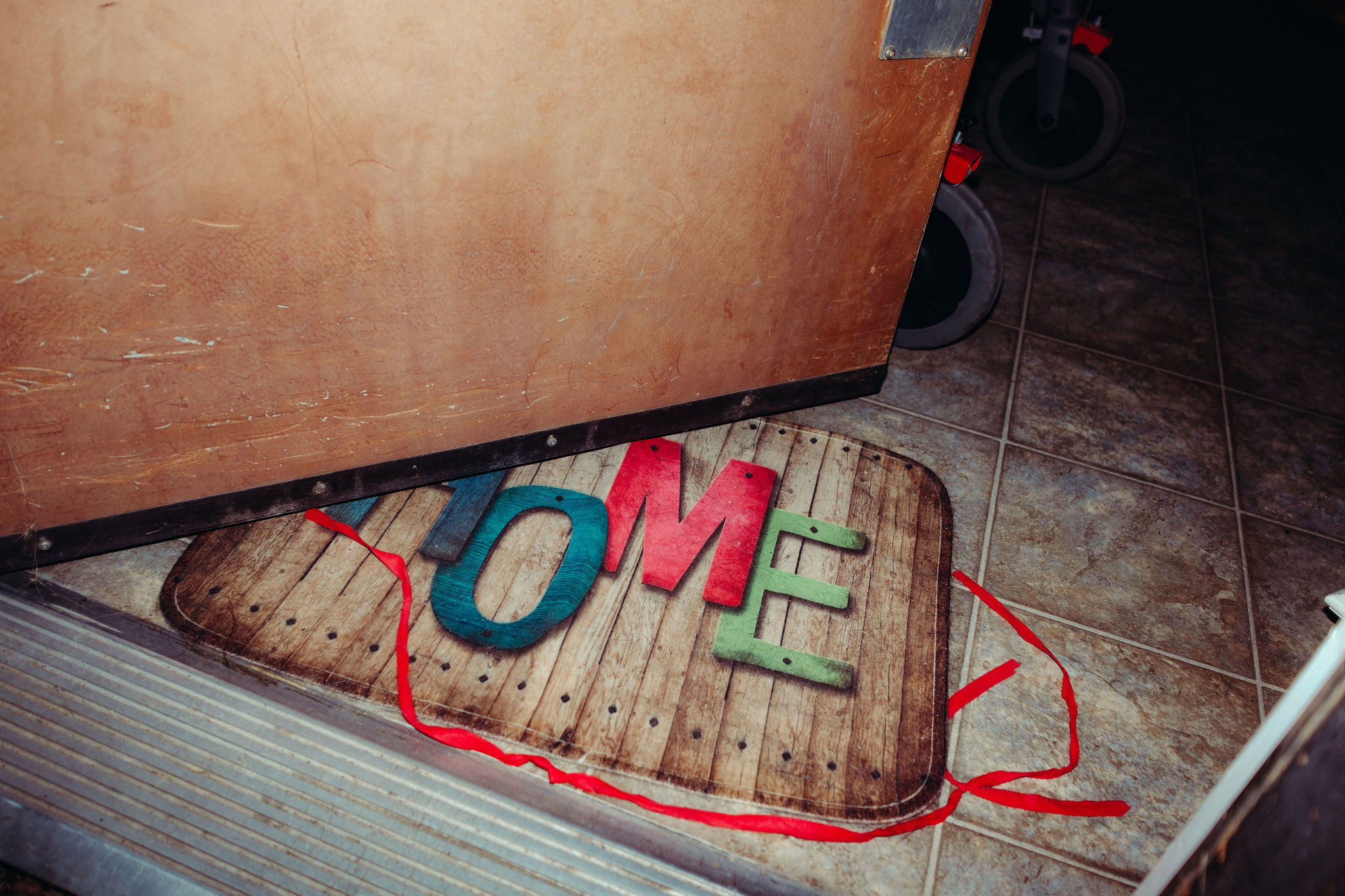This is one of 12 interviews conducted with various Edmontonians about their experience with the housing system. It has been edited for clarity and length. Read more about why and how Taproot embarked on this series.
Bruce Bremner is on income support in lodgings provided through the Jasper Place Wellness Centre's Bridge Healing program after an accident in January 2024 that resulted in infection. He was raised in Northern Alberta, worked on railroad construction, and maintained a career on service rigs for 25 years.
Can you tell us a bit about how you got here?
Last December, I was chasing cans, bottle-picking, right? So I jump over a fence and I get this cut here, and my leg just blew up. All the poison went into my bone. I ended up doing intravenous therapy for about three months. I never thought of that, you know. I thought I'd be killed by a truck or an angry boyfriend or something, not my little cut.
The doctor lined me up with the social worker, and they lined me up with Jasper Place (Wellness Centre) and Bridge Healing. I was staying at the Herb Jamieson. I told him there's no way I'll be staying over there clean. I appreciate what they're doing, but you've got to stay stoned and drunk just to tolerate those people there, because otherwise you'll go squirrelly. The social workers lined me up with Bridge Healing, and in my words, they gave me the ball and it's in my court. And I'm just going to run with it as much as I can, I guess.
You grew up in Northern Alberta?
I grew up in Girouxville. I was a railroad kid. My dad worked on the railroads, and we were the only native family in the community and that community took us in because my dad was respected and hardworking. He taught us the values, morals, and beliefs. My dad said if you want something, you got to do your half, so that's what I've been doing.
I got to Grade 12, but I got my first impaired and my dad says, "I'm not paying for your ticket, here's a job." So, I had a job on the railroad (for three years), then I couldn't see myself doing it the rest of my life, and that's when I jumped on the rigs.
It's a good life. I always had money. Divorced three times. The last wife passed away from cancer. That's the only bad thing about working on service rigs. Sometimes you're gone two or three months, and women get lonely, and I don't blame them, right? Yeah. That's when you're drinking and drugging, and I could always put the dope down. The booze was the hard part.
But when I was drilling (running a crew), I didn't drink. You have to drive the people to work, you have men's lives in your hands. (A driller is) basically a frontline supervisor, basically your glorified babysitter. You've got to make sure the tool push is happy, your crew's happy, your wife's happy, the consultant's happy…I lucked out there in the last five years, I got a job in Wabasca. That's where I met my last partner, and I was home every night … company truck, company credit cards.
How did you manage the drinking then?
It was hard, but I did it. I'd have a couple of beers, but I wouldn't get drunk because you've got to wake up early in the morning and start the truck and make sure it's warm and get the boys ready. The proper term is functioning alcoholic, I guess. I still am, but not as bad as I used to be because it's so hard on the guts.

Bruce Bremner, who was homeless for a period of time, sits in his apartment in the Jasper Place neighbourhood. (Jordon Hon)
It sounds like you had a stable life. What happened to change that?
I had a rough year (in 2019). I lost my wife in January, my best friend on Jan. 31, and in February, my dad died. I had a rough, rough go there. All in one month.
I was mad as hell. I went on a rampage, drinking-wise. I was mad at the world. I got 25 grand, and I came to town and partied it up. I maintained an apartment for about five months, and then ran out of money and then hit the streets. Then it's learning the ropes, you know? If you go hungry in Edmonton, you're doing something wrong. There's free food all over the place. It's lots of legwork, but you got to do what you got to do.
My addictions were a lot higher when I was homeless. Here I don't drink as much because these people, they kind of help to not party and drink, which is a good thing – it's a blessing in disguise. I like the stability here, paying my bills. I'm meeting people on the streets here, too, and they're camping down by the river and behind the Mustard Seed. So that could be me, you know?
I used to call down people that were homeless, and people jumping bins. Then I became homeless. Then I started jumping in bins. When they stereotype it like that, it's hard to live that down, and when people find out you used to do that … to me, it's no big deal. It's survival to me, you got to do what you got to do. I don't care what you think of me. I'm still treading water, I'm working beside you, if you don't like me, move on. I'm not going any place. (These people), if you're working on the rigs or even as a carpenter, they don't give a **** about me.
The homeless people are some of the best people I ever met in my life. They'd give you their last smoke, their last sandwich. You know, you never see that happen in the white-man world. Like every day, it's a dog-eat-dog society.
Any great memories you want to share?
When I was double-tracking for CN, I was working in Jasper, and I felt insignificant compared to seeing what God made, the mountains and land. I was just a little speck there in those big mountains. That comes from Mother Earth, and the Aurora Borealis, cool stuff. You know, (even if) you had a hard day, Mother Nature's still out here, 22,000 miles an hour, still spinning.
What's next for you?
It's baby steps for me. That's my scenario. Just get off the streets, get cleaned up. Crawl your way out of it, right? And so far, the support system has been great.
Originally, I wanted to be a lawyer, but I got an impaired (charge) and I got the taste of booze, and it got the best of me. I had a pretty good career. I just wanted to live, to be happy. I learned the attitude of gratitude. So, I just don't make too much noise. I want to get a job and get out of this place, so that's my goal right now.
This interview was conducted on Sept. 25, 2024.


